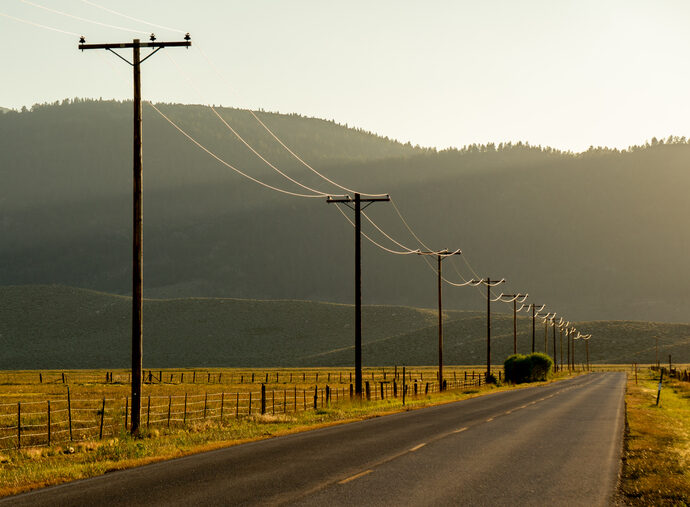
Patty Judge: FCC Pole Attachments Proceeding Will Help Boost Connectivity Across America
Broadband Breakfast | 5/16/22
My home state of Iowa ranks 45th in the country when it comes to the share of people with access to broadband.
In fact, around one-third of our counties are labeled as “broadband deserts” where reliable, high-speed internet is “rarely” offered.
In real terms, that means hundreds of thousands of our friends, family members, and neighbors still cannot find jobs online, access remote learning opportunities, leverage precision agriculture technology, speak to a doctor over video conference, or simply connect with loved ones online.
Thanks to new investments, that could soon change, but only if policymakers act quickly to clear away long-standing obstacles, including those raised on the recent Broadband Breakfast Live panel entitled, “New Wires on Old Poles: Will the FCC Change Rules for Attachments?”
Over the past few years, lawmakers at both the federal and state levels have sought to tackle the digital divide once and for all. For example, this past January, our state announced an additional $200 million in grants for broadband projects across Iowa, bringing the total award amount to $880 million just within the past three years.
On the national level, federal lawmakers allocated $65 billion specifically for broadband within the bipartisan infrastructure bill.
The resources are there to meet the challenge, but only if crucial funding is used in the most effective and efficient way to guarantee that unserved homes, businesses, and other anchor institutions in our rural communities receive access to reliable, high-speed internet as quickly as possible.
This means eliminating barriers that stand in the way of swift broadband deployment, especially when it comes to accessing millions of utility poles that carry broadband into remote areas.
The outdated, costly, and time-consuming process of attaching broadband infrastructure to utility poles often leads to lengthy disputes and investment-constraining costs that can delay or even halt deployment efforts altogether.
It may not immediately be clear how and why poles – owned by utility companies, electric cooperatives or municipalities – play such a significant role in the broadband deployment process, but they are essential.
To bring unserved households high-speed internet connectivity, service providers must attach wires to these poles. In rural communities, including those in Iowa, broadband providers may have to connect cables to upwards of 10 or more poles just to reach one house or small business.
Adding to this challenge, outdated or damaged poles may need to be replaced before cables can be attached. In practical terms, as many as one in 12 of these poles might need to be replaced for buildout to proceed.
That doesn’t happen swiftly unless pole owners are ready to do their part.
A study by Connect The Future found that for every month of delayed expansion due to pole-related hold ups, Americans forego somewhere between $491 million and $1.86 billion in economic gains.
It is encouraging to see the Federal Communications Commission propose new action on pole attachment reform.
This proceeding demonstrates that the FCC, under Chairwoman Jessica Rosenworcel’s leadership, recognizes pole access as a significant barrier to broadband deployment in unserved areas and understands the need to ensure a fast and fair process for attachments, replacements, and dispute resolution – before needless expenses and delays dilute the impact of new federal and state funds devoted to broadband deployment.
Rural Iowans need access to broadband now and utility poles attachment reforms are essential to making that vision a reality.
It’s time to reform outdated pole attachment rules, specifically by guaranteeing a fair division of costs between attachers and owners for poles that need replacing, and setting a reasonable timetable for the resolution of disputes. Without these long overdue reforms, millions across the country will continue to fall behind.
Patty Judge is the former Lieutenant Governor of Iowa (2007-11) and the co-founder of Focus on Rural America. This piece is exclusive to Broadband Breakfast.